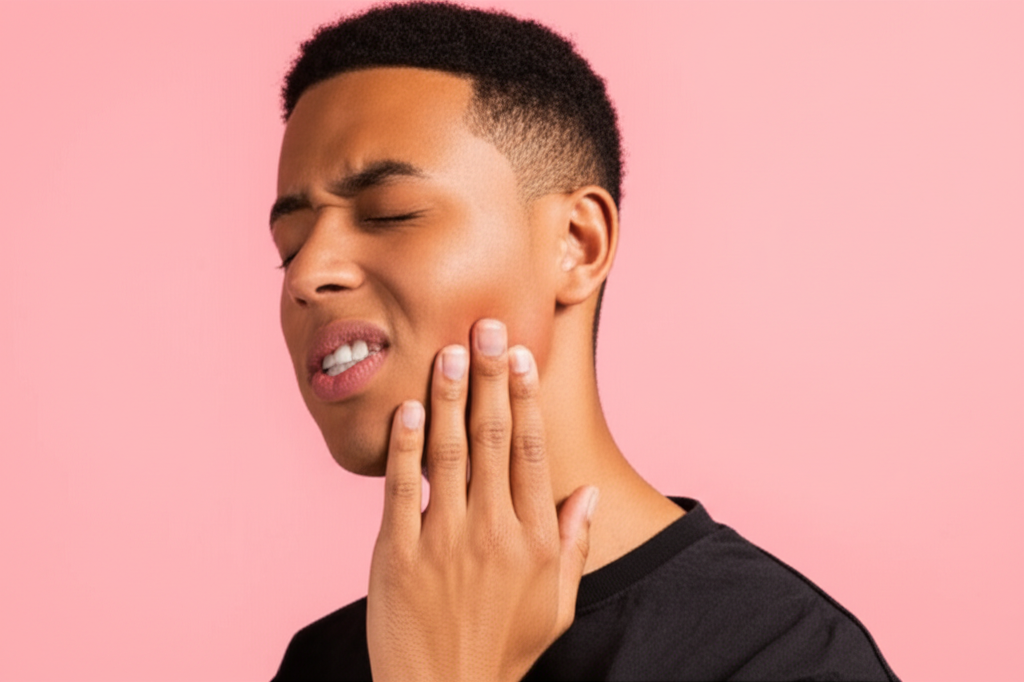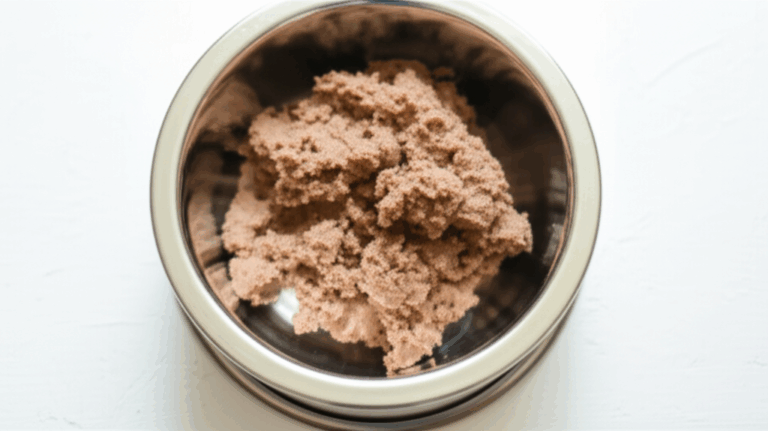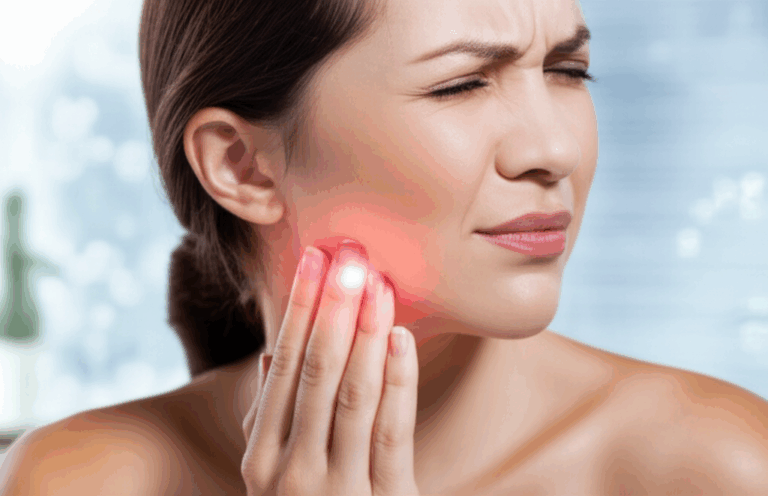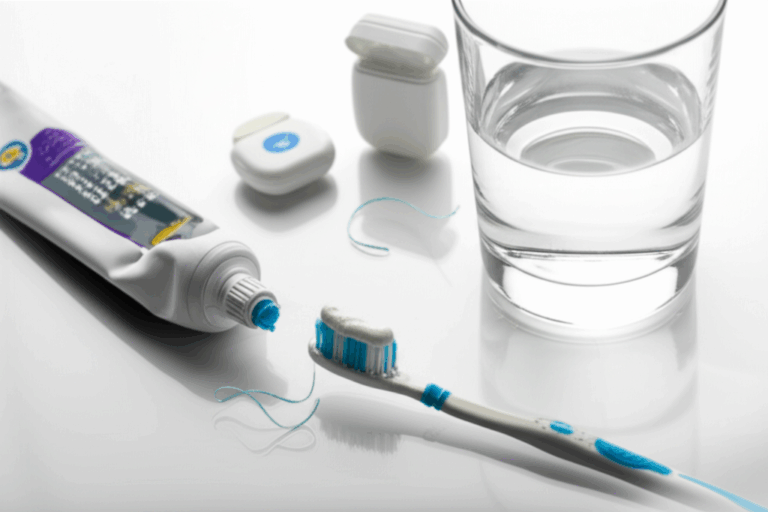
Can Your Teeth Really Make Your Ears Ring? The Surprising Answer
That constant ringing sound in your ears is called tinnitus. It can be bothersome and stressful. You might think it's just an ear problem. But what if it's actually coming from your mouth? It's true! Problems with your teeth or jaw can make your ears ring. This article will show you the surprising link between your mouth and your ears. You'll find out which tooth or jaw troubles can cause this weird ear noise and what you can do to feel better. Read on to learn how they're connected and find your first step to relief.
Table of Contents
- What's the Big Connection Between Your Jaw and Your Ears?
- What Dental Problems Can Cause Ear Ringing?
- Could I Be Grinding My Teeth and Not Know It?
- Can My Bite Really Affect My Ears?
- What Other Clues Should I Look For?
- How Do I Know for Sure if My Teeth Are the Cause?
- How Can I Stop the Ringing and Get Relief?
- Are There Stronger Treatments if Nothing Else Works?
- How Can I Stop This From Happening Again?
- Questions People Often Ask
- Your Path to a Quieter Life
What's the Big Connection Between Your Jaw and Your Ears?
Have you ever wondered why a toothache can make your whole head hurt? Your body has many parts that are linked. Your jaw and ears are very close to each other.
Your jaw joint is called the Temporomandibular Joint, or TMJ. You have one on each side of your head, right in front of your ears. They let you talk, chew, and yawn. Because the TMJ is so close to your ear, a problem with this joint can feel like an ear problem, too. Swelling in the jaw joint can easily bother the parts of your ear nearby, like the middle ear and inner ear.
Your face, teeth, and jaw are all connected by a large nerve called the trigeminal nerve. Think of it like a phone cable. This nerve carries messages to your brain. It splits into branches that go to your chewing muscles and also to parts of your ear. When your jaw is tense or hurting, it can send mixed messages up these nerves. Your brain might take these mixed messages as ringing in your ears. This is why pain from a tooth or jaw problem can show up as ear ringing. This is also called somatic tinnitus, because it's coming from somewhere in your body, not your ear itself.
What Dental Problems Can Cause Ear Ringing?
There are different mouth or jaw problems that can bring on that annoying ringing. It's not just one thing. It's often a mix of troubles that build up over time.
The most common cause is a jaw joint problem, called TMD (short for Temporomandibular Joint Disorder). This happens when your jaw joint gets hurt or overworked. Things like an uneven bite, an injury, or even stress can cause TMD. The pain and pressure from TMD often lead to ringing in your ears from jaw problems.
Another big problem is bruxism. That's just a fancy way of saying you grind or clench your teeth. Lots of people do it at night and don't even know. This constant pressure wears out your teeth and makes your jaw muscles sore. This muscle tension can cause ear ringing from teeth clenching and even headaches from jaw problems.
Here are other troublemakers:
- Bad Bite (Malocclusion): This just means your teeth don’t line up right. A “bad bite” makes your jaw work harder, causing strain and soreness.
- Impacted Wisdom Teeth: When your wisdom teeth don't have room to grow, they can push on other teeth and nerves. This pressure can cause pain that travels to your ear. So yes, a tooth that can’t come out right might cause pain in your ear.
- Infected Teeth or Gums: A bad cavity, a tooth abscess, or even gum trouble can cause swelling. This swelling can bother the nerves that link your teeth and ears. An abscessed tooth can also give you ear pain.
- Recent Dental Work: Sometimes, after you get dental work, you might notice ringing. This can happen from keeping your mouth open for a long time. It can also be from some swelling after a root canal or having a tooth pulled. The good news is this kind of tinnitus often goes away by itself.
Could I Be Grinding My Teeth and Not Know It?
Yes. A lot of people grind their teeth without knowing it. This is called bruxism, and it often happens when you are sleeping. Do you wake up with a sore jaw or a dull headache? That's a big sign.
Bruxism and ringing in the ears are tied closely together. When you clench your jaw all night, your chewing muscles get tired and tense. These muscles are right next to your ears. The soreness spreads and can cause pain in your ears from grinding your teeth. It can also make your ears feel clogged or full.
This non-stop muscle work isn’t normal. It puts a lot of pressure on your jaw joint, leading to jaw popping and ear ringing. If you’re under stress, you might be clenching your jaw in the daytime, too, without even knowing it. This constant muscle work is a big trigger for jaw and ear problems. A special mouthguard—made just for you by a [[night guard dental lab]]—is a common fix. It keeps your teeth safe and helps your jaw muscles relax.
Can My Bite Really Affect My Ears?
Your bite, or malocclusion, is the way your top and bottom teeth fit together. When they don't fit right, it can cause a lot of trouble.
Think about your jaw like a door hinge. If the door is crooked, the hinge gets worn out and takes on more stress. It's the same with your jaw. If your bite is wrong, your jaw muscles have to work harder to chew. This uneven pressure makes your TMJ sore and tired. Over time, it can lead to jaw pain, face aches, and ringing in your ears.
Fixing a bad bite might mean a simple bite adjustment, where a dentist smooths down rough or high spots on your teeth. Sometimes you might need braces or other ways to fix how your teeth fit together, so your jaw isn’t always overworking. Fixing your bite helps your jaw and muscles rest, which often helps cut down or stop the ringing from jaw pain.
What Other Clues Should I Look For?
Ear ringing is often just one clue. If your tinnitus comes from a dental problem, you probably have other symptoms. Look out for this group of signs, since they usually show up together.
Common signs of mouth or jaw problems that make your ears ring:
- Jaw pain or soreness, especially when you wake up.
- Clicking, popping, or grinding sounds from your jaw when you open or close your mouth.
- Trouble opening your mouth wide, or a feeling like your jaw is locked.
- Headaches, especially near your temples.
- Neck pain and stiff shoulders.
- Deep ear pain that feels inside, but an ear doctor says there's no infection.
- A feeling that your ears are full or under pressure, like they need to pop.
- Hearing that’s not clear, or muffled.
- Dizziness or feeling a little off-balance.
If you have ear ringing along with any of these, there’s a pretty good chance your jaw or teeth are part of the problem. This group of symptoms usually means trouble with your TMJ.
How Do I Know for Sure if My Teeth Are the Cause?
You really can't tell by yourself at home. You need to see a trained professional who can check you closely. Getting the wrong answer gets you the wrong treatment.
Start by seeing a dentist, especially one who knows a lot about TMJ problems. They'll check your teeth, look at your bite, and look at your jaw movement. They’ll also feel your face and neck muscles to see if they are sore or tight.
Here’s what might happen when they’re checking for TMJ-related ear ringing:
| Who to See | What They Do |
|---|---|
| Dentist / TMJ Specialist | Looks at your bite, checks your jaw muscles, looks for flat teeth from grinding. They are the best dentist for ear ringing problems. |
| Oral Surgeon | Steps in if there are serious jaw joint troubles. |
| ENT (Ear, Nose, Throat) Doctor | Checks for ear infection, ear wax, hearing loss or other ear-only reasons for tinnitus. Helps make sure the ear itself isn’t the main cause. |
| Physiotherapist | Checks your posture and the muscles in your neck and shoulders, since neck problems can go with TMJ troubles. |
Your dentist might take special x-rays, a CT scan, or an MRI of your TMJ to look at your jaw and bones. They might also send you for a hearing check (a hearing test) to make sure everything else is okay.
How Can I Stop the Ringing and Get Relief?
The good news is, you don’t have to stick with the ringing sound forever. Most treatments are easy and focus on helping your jaw and fixing your bite. You can do a lot at home to start.
Home remedies include:
- Warm and Cold Packs: Use a warm towel or a cold pack on your cheek to help with sore muscles or jaw pain.
- Eat Soft Foods: Choose foods like soup, yogurt, and mashed potatoes so your jaw gets a break. Skip chewy and hard foods for now.
- Easy Jaw Exercises: A physiotherapist can show you gentle moves for your jaw to stretch and build up those muscles.
- Find Ways to Relax: Stress makes jaw clenching worse, so take walks, do deep breathing, or try meditation.
If home treatments aren’t enough, your dentist can help. Getting a custom mouthguard or splint is a really good and common treatment for ringing caused by teeth grinding or jaw problems. It keeps your teeth from rubbing together and lets your jaw muscles calm down. Sometimes, you may need repairs like crowns or bridges to even up your bite, using materials from a [[crown and bridge lab]]. These repairs will give you a healthier bite and help with [[Dental Care]].
Are There Stronger Treatments if Nothing Else Works?
For most people, simple fixes do the trick. For a few people with really tough pain and ringing, there are other steps. These are for severe cases.
One option is Botox shots. Botox can calm down tight jaw muscles and help with pain and ringing for a few months. Your doctor might also give you medicines for jaw and ear pain, like muscle relaxers.
In rare cases, if the jaw joint is very damaged, surgery might be needed. This hardly ever happens, and only after everything else has been tried. You want to work with a group of experts, like an oral surgeon TMJ specialist and a doctor who knows about both ENT and TMJ problems. Even if the ringing doesn't totally stop, there are ways to deal with it. Sound therapy, like using a white noise machine at night, can help cover up the ringing.
How Can I Stop This From Happening Again?
Once you feel better, you’ll want to keep the problem from coming back. Stopping the problem is mostly about taking care of your mouth and not making your jaw work too hard.
First, go to the dentist for check-ups on a regular basis. This helps catch small problems, like a new cavity or signs you’re grinding your teeth, before they become big. Keeping up with good oral hygiene also helps your ear health.
Here’s what else helps:
- Don’t chew on things that aren’t food—skip pens, ice, fingernails and gum.
- Skip chewing gum. Chewing all the time wears out your jaw muscles.
- Watch your posture. Slouching puts extra pressure on your neck and jaw. Sit up straight, especially when you use a computer.
- Handle stress in healthy ways. Make time to relax and unwind.
These simple habits will keep your jaw happy, your ears quiet, and help you avoid those problems in the future.
Questions People Often Ask
Is ear ringing from teeth forever?
No, usually not. If the ringing is caused by your teeth or jaw, handling the problem often stops or improves it a lot. Many people feel much better once their jaw or grinding issue is treated.
Who do I see first for ear ringing with jaw pain?
If you have both ear ringing and jaw pain, your best bet is to start with a dentist who knows about jaw joint (TMJ) problems. They can check if your jaw or teeth are causing the trouble. It's also a good plan to see an ENT doctor to double check your ears are okay.
Is ringing in the ears from the jaw common?
Yes, more common than you’d think. Studies show lots of people with jaw problems also have ear ringing. Some say up to 75% of people with jaw joint troubles have ringing in their ears.
Your Path to a Quieter Life
That ringing in your ears can be very annoying, but you’re not alone, and you can get help. The link between the health of your mouth and your ears is real.
To remember:
- Your jaw joint (TMJ) sits right next to your ear, and they share nerves. A problem in one can easily hit the other.
- Common mouth problems like grinding your teeth, a bad bite, or wisdom teeth troubles are big causes of ear ringing.
- Look for clues like jaw pain, odd jaw sounds, headaches, and a full feeling in your ears. These are warning signs.
- Getting checked by both a dentist and an ear doctor is important. They can team up to find out what’s really going on.
- Treatment works! Mouthguards, gentle exercises, stress control, and fixing your bite can really help.
Don’t just ignore the ringing. It might be your body telling you something is wrong with your jaw. Talk to your dentist about any symptoms you have. Taking care of your mouth is a great first step to getting your life quieter, calmer, and better again.








